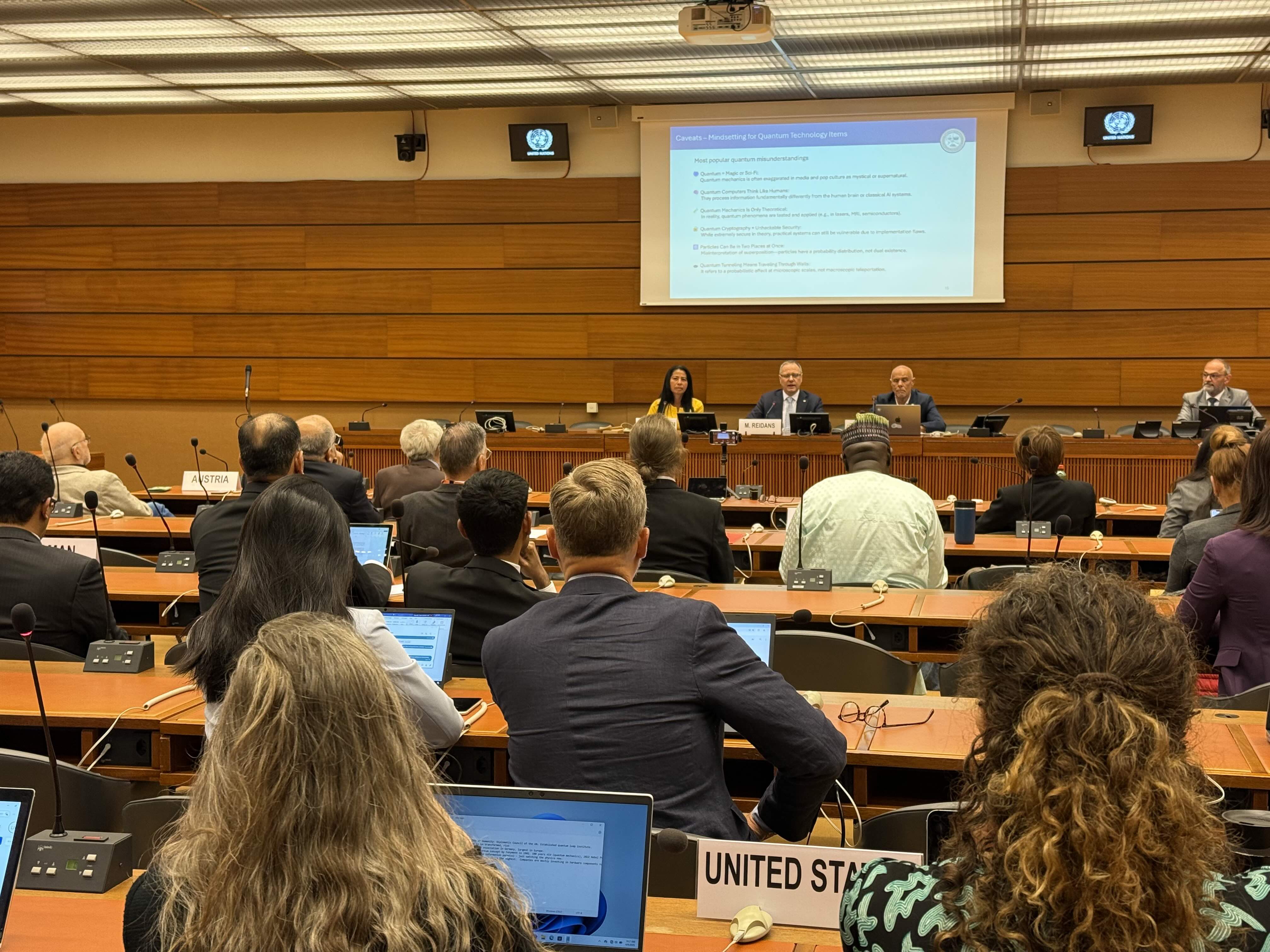April 8, 2025 was a historic day for all participants at the launch event of the Diplomatic Council Quantum Leap initiative at the UN Commission on Science and Technology for Development in Geneva. China, India, Russia, the USA and my more countries were listening to what Harald A. Summa, Chairman DC Quantum Leap, Matthias Reidans, Innovation Program Manager DC Quantum Leap, and Hang Nguyen, Diplomatic Council Secretary General, had to say.
It is crucial that the international community, the business sector, and civil society understand the vast potential of quantum technology in order to prepare for the right approach to this next stage of the computerization of our world. In this regard, the Diplomatic Council Quantum Leap Initiative brings together key players and paves the way for quantum technology to move from research and development labs into the real world of people.
Please watch the full video or the landmark presentation at UN Geneva:
Key areas where quantum technology can drive progress
1. Climate Research
Quantum computing can enable earlier and more precise predictions of extreme weather events, allowing timely protective and emergency measures for affected populations.
2. Medical Technology
Quantum sensing could revolutionize medical imaging, replacing traditional methods like computed tomography (CT) and magnetic resonance imaging (MRI). These advanced techniques offer higher accuracy and more detailed representations, improving diagnoses and patient outcomes.
3. Material Science
Quantum simulations of molecules and materials can lead to groundbreaking discoveries of substances with superior properties. This could result in more efficient batteries, innovative medicines, and enhanced industrial materials.
4. Artificial Intelligence
Quantum computers have the potential to accelerate AI development by providing exponentially greater computational power. The synergy between AI and quantum computing could enable new algorithms and innovations, leading to numerous applications aimed at improving human life.
Preparing for a "Quantum Crisis"
A critical risk posed by quantum technology is the eventual obsolescence of traditional encryption methods. Quantum computers could decrypt current encryption standards, exposing sensitive state and corporate data to cyber criminals. Such a scenario could lead to a catastrophic breach of information. Therefore, immediate action is required. States, international institutions, and businesses must prioritize transitioning to quantum-safe encryption. Critical infrastructure sectors – such as finance, logistics, and public utilities – should be secured as a matter of urgency.
Quantum Cloud Computing (Quantum-as-a-Service)
To ensure global access to quantum technology, quantum computing resources can be offered through cloud-based solutions. This approach would allow even less developed countries to benefit from quantum advancements without requiring their own quantum computing infrastructure. Additionally, providing quantum-safe encryption methods to these countries will be essential for maintaining secure communication and data protection.

